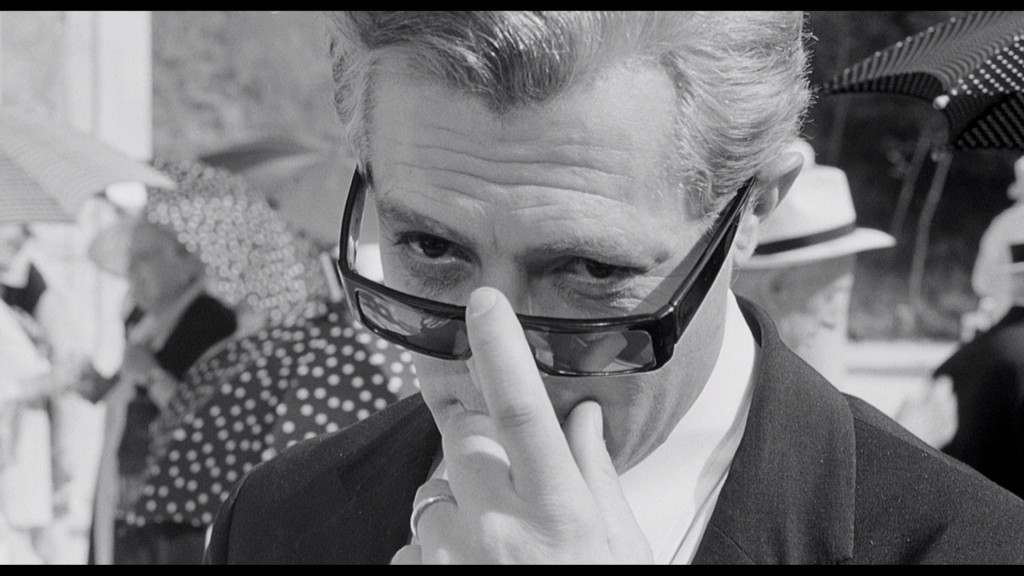My Voyage to Italy Review
 To most the question of what is your favourite Martin Scorsese film is one that will be answered with very few answers. Taxi Driver most likely but if not that then probablyRaging Bull or Godfellas. There’ll probably even be a few that would opt for King of Comedy, Gangs of New York, The Aviator, The Departed or even Shutter Island but one thing would most likely be near unanimous, the film picked would be a fiction film. When asked this question recently I answered without a seconds pause, A Personal Journey with Martin Scorsese Through American Movies (a slight cheat as this is better known as a TV series but it has been shown theatrically).
To most the question of what is your favourite Martin Scorsese film is one that will be answered with very few answers. Taxi Driver most likely but if not that then probablyRaging Bull or Godfellas. There’ll probably even be a few that would opt for King of Comedy, Gangs of New York, The Aviator, The Departed or even Shutter Island but one thing would most likely be near unanimous, the film picked would be a fiction film. When asked this question recently I answered without a seconds pause, A Personal Journey with Martin Scorsese Through American Movies (a slight cheat as this is better known as a TV series but it has been shown theatrically).
Scorsese’s 1995 documentary A Personal Journey… to me is probably the best thing Scorsese has ever made and is the only film of his that I have never tired of watching. Over the 225 minute runtime Scorsese guides you through his favourite American films and why he loves them. As the title would suggest it is an entirely personal journey and therefore an entirely subjective one, but this is perhaps its greatest strength. It is a pleasure to watch and a film that I have happily returned to again and again.
This is in contrast to Scorsese’s fiction films, which I have found more and more disappointing as his career has gone on and even his earlier films look less accomplished under the scrutiny of re-watches. Some of the camera work and compositional choices in Cape Fear, for instance, are baffling, frustrating and down right daft and grate a great deal the first time and even more so with further viewings. Whilst my joy at watching Scorsese’s fiction films has greatly diminished the pleasure at watching him curate a collection of clips and recall his first experiences with certain films has lost none of its sheen.
Scorsese clearly loves cinema and this shines through A Personal Journey… and also his love letter to Italian cinema, My Voyage to Italy. Again choosing to present this journey as an entirely subjective one Scorsese takes the viewer in hand and leads them through a selection of Italian films that left a profound impression on him, stopping short of moving into the late sixties and beyond.
Scorsese finds epic scope in silent classics such as Cabiria, beauty in the work of Rossellini, truth in the work of the so called neo-realists, particularly Vittorio De Sica and fascination in the more thrilling modernity of directors such as Fellini. His observations are those born out of a love of the films and what they mean to him not out of critical considerations, although these occasionally slip in.
The film’s strength is in his personal recollections though and his passionate decelerations of love for the clips he shares with us. When he does move into more critical areas, analysing the way in which certain films work, things tend to get a little derailed and pronouncements regarding the films are little vague and lacking substance. These diversions are minor though and for the most part his commentary is impassioned and absorbing.
With the overwhelming way in which cinematic marketing materials seem to be dominating discussions surrounding films there are too few voices reaching mainstream audiences that are actually talking about film, sharing a passion for films and in particular for foreign language and ‘old’ films. Scorsese has a position within the popular consciousness that affords him the opportunity to add greatly to this discussion and here he provides the casual film fan with a list of must-see Italian films and an impassioned plea to watch them.
When shown on TCM in 2002 the documentary was followed by a host of Italian films and this is exactly the desire one has once the credits roll, to gorge on everything Italian cinema has to offer.
A slightly different version of this review was originally posted at HeyUGuys.